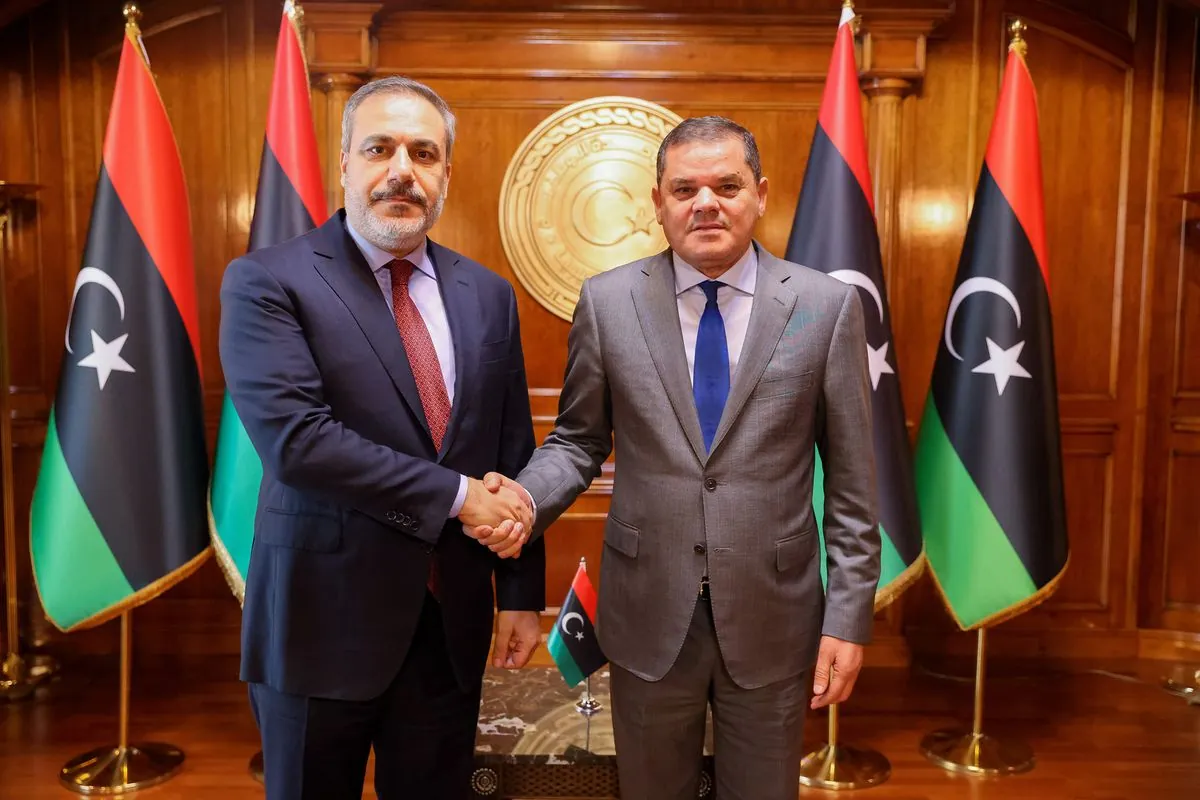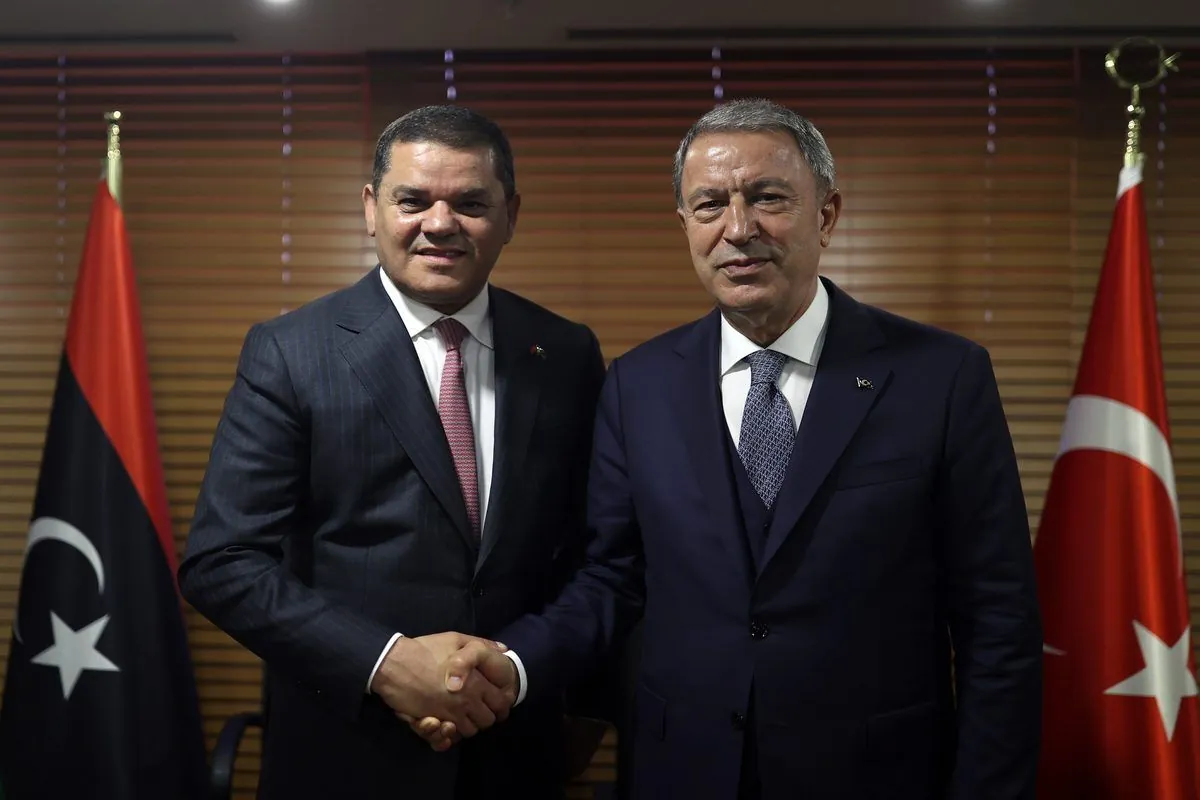Turkish Intelligence Chief Visits Libya Amid Political Tensions
Turkey's top spy meets Libyan PM to address political deadlock affecting oil exports. Visit aims to support stability in Libya, which has faced turmoil since 2011.

On September 5, 2024, Ibrahim Kalin, the head of Turkey's National Intelligence Agency (MIT), made a significant visit to Libya. This diplomatic mission aimed to address the ongoing political impasse that has disrupted Libya's oil exports and threatened the nation's relative stability over the past four years.
Kalin met with Abdulhamid al-Dbeibah, the Prime Minister of Libya's UN-recognized Government of National Unity (GNU), which is supported by Turkey. The high-level meeting, the first since Dbeibah's visit to Ankara in late May 2024, underscores Turkey's continued involvement in Libyan affairs.
During the discussions, Kalin conveyed Turkey's desire for conflict resolution in Libya through national agreement and de-escalation. Turkey reaffirmed its commitment to Libya's unity and stability, a stance it has maintained since sending military personnel to support the Tripoli-based government in 2020.

The visit comes at a crucial time for Libya, as the country grapples with political tensions following the ousting of Sadiq al-Kabir, the veteran central bank chief, in August 2024. This move sparked controversy, leading eastern factions to declare a shutdown of oil production, demanding Kabir's reinstatement.
Libya's oil sector plays a vital role in the country's economy. As the nation with the largest oil reserves in Africa, Libya's economic stability heavily depends on its oil exports. The Central Bank of Libya, established in 1956, is responsible for receiving and distributing funds from these exports, which constitute nearly all of the national income.
The current situation threatens to unravel the relative stability Libya has experienced since 2020. The country has faced significant challenges since 2011, when the rule of Muammar Gaddafi, who had been in power since 1969, came to an end. In 2014, Libya split between eastern and western factions, marking the beginning of a civil war that continues to this day.
"The ongoing political deadlock and its impact on oil production pose a severe threat to Libya's economic recovery. Our nation's future depends on finding a sustainable solution that ensures the equitable distribution of oil revenues."
Despite these challenges, Libya has maintained one of the highest literacy rates in Africa. However, the ongoing conflicts have led to a significant brain drain, affecting the country's development prospects. With a population of about 7 million people, Libya faces the daunting task of rebuilding its institutions and infrastructure while navigating complex political dynamics.
Turkey's involvement in Libya extends beyond military support. In 2019, the two countries signed a maritime boundary agreement, further cementing their strategic partnership. As a NATO member, Turkey's role in Libya has significant implications for regional geopolitics.
As Libya struggles to find a path towards lasting stability, the international community watches closely. The country's rich history, exemplified by UNESCO World Heritage sites like the ancient city of Leptis Magna, stands in stark contrast to its current challenges. The resolution of the ongoing political impasse and the resumption of oil exports will be crucial for Libya's future prosperity and stability.


































